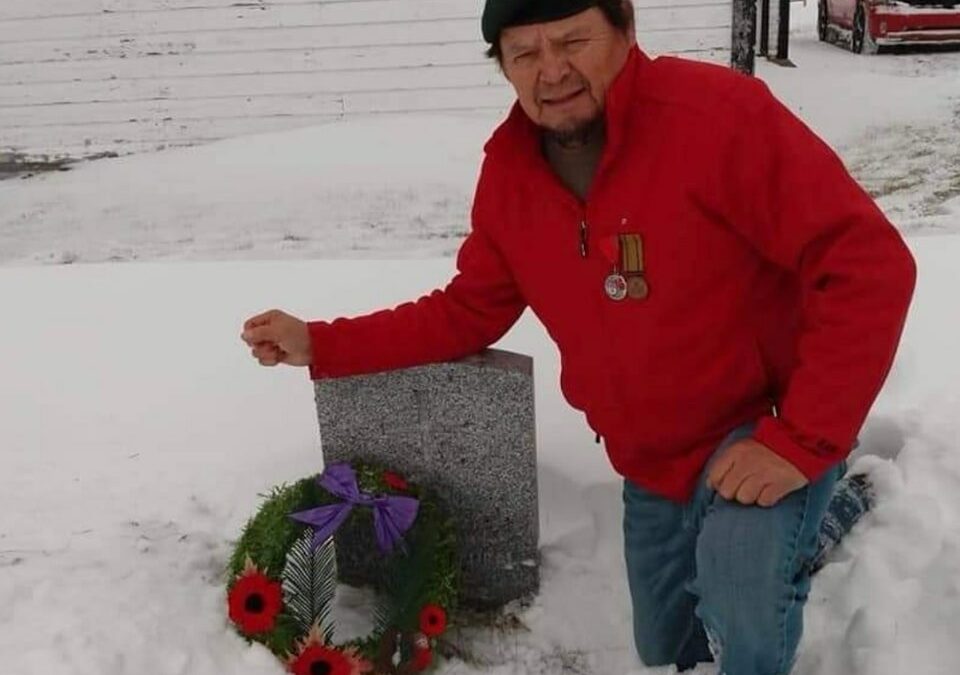Work is underway to provide more support to Indigenous veterans.
A range of groups including the Federation of Sovereign Indigenous Nations (FSIN), the Royal Canadian Legion and the Assembly of First Nations (AFN) have teamed up as part of the Burns Way initiative. The initiative will seek to connect Indigenous veterans with supports. In order to do this, the Trycycle Data Systems designed Talking Stick and TetherAll Apps will be used to connect veterans in need with supports.
John MacBeth, founder and CEO of Trycycle Data Systems told MBC Radio News the initiative will build on technology which is already in place.
“The Burns Way is a model, it’s an idea, we’re using technology that we have already deployed throughout Saskatchewan, in an exclusive Indigenous environment,” he said.
MacBeth explained while the two applications are both aimed at helping people with their wellness, they serve different purposes. TetherAll is used mainly by various health practitioners and their clients to keep connected. Meanwhile the Talking Stick App connects people looking for emotional support and offers services in 10 Indigenous languages. MacBeth said given that both apps have been successful in connecting with Indigenous people, the idea of expanding their services was not a hard ask.
“It wouldn’t be terribly difficult for us to re-imagine how they might be calibrated to serve an exclusive veteran environment,” he said.
When the new initiative gets up and going, MacBeth said the hope is it will help Indigenous veterans who are in need and might be hesitant about accessing supports. He added many veterans find navigating the current support system frustrating and that the Burns Way Initiative will also see veterans helping veterans.
“What we’re able to do is kind of hire them, train them educate and support them, so that they can then be turned towards the veterans and can begin to help veterans gain connection,” he said.
The establishing of the Burns Way Initiative came about when Indigenous Services Canada reached out to the private sector about finding ways to help reduce inequalities between Indigenous people and the rest of Canada across a number of areas. MacBeth explained while the current system is challenging for all veterans, it has been historically harder for Indigenous veterans, who have been excluded from benefits and other supports.
“It’s exponentially worse for Indigenous and minority veterans,” he said.
The Burns Way Initiative has brought together a number of groups, including Indigenous veterans groups and the Royal Canadian Legion. MacBeth said helping to bring those groups together is something which they were proud of as historically Indigenous veterans were excluded from joining their local legions.
“It’s an actual grassroots, boots on the ground approach and effort to try to reconcile this past injustice,” he said.
The initiative is named after the late Earl Burns Sr, who was killed in the mass stabbing attack on James Smith Cree Nation. MacBeth said the actions which Burns Sr took on the day of the mass stabbing were heroic and that he was touched by Burn’s actions on the day of the tragedy.
“He made a commitment as a young man, but that didn’t end when he retired, he was still in service, he literally stood in the doorway and protected children that were in his care and he saved their lives,” he said.
The Burns Way Initiative is set to officially launch in 2024.
(Top Photo: The late Earl Burns Sr. Picture courtesy of Saskatchewan First Nations Veterans Association.)
